Search results
Projects
Creative Citizenship
New ways to connect young people to the world
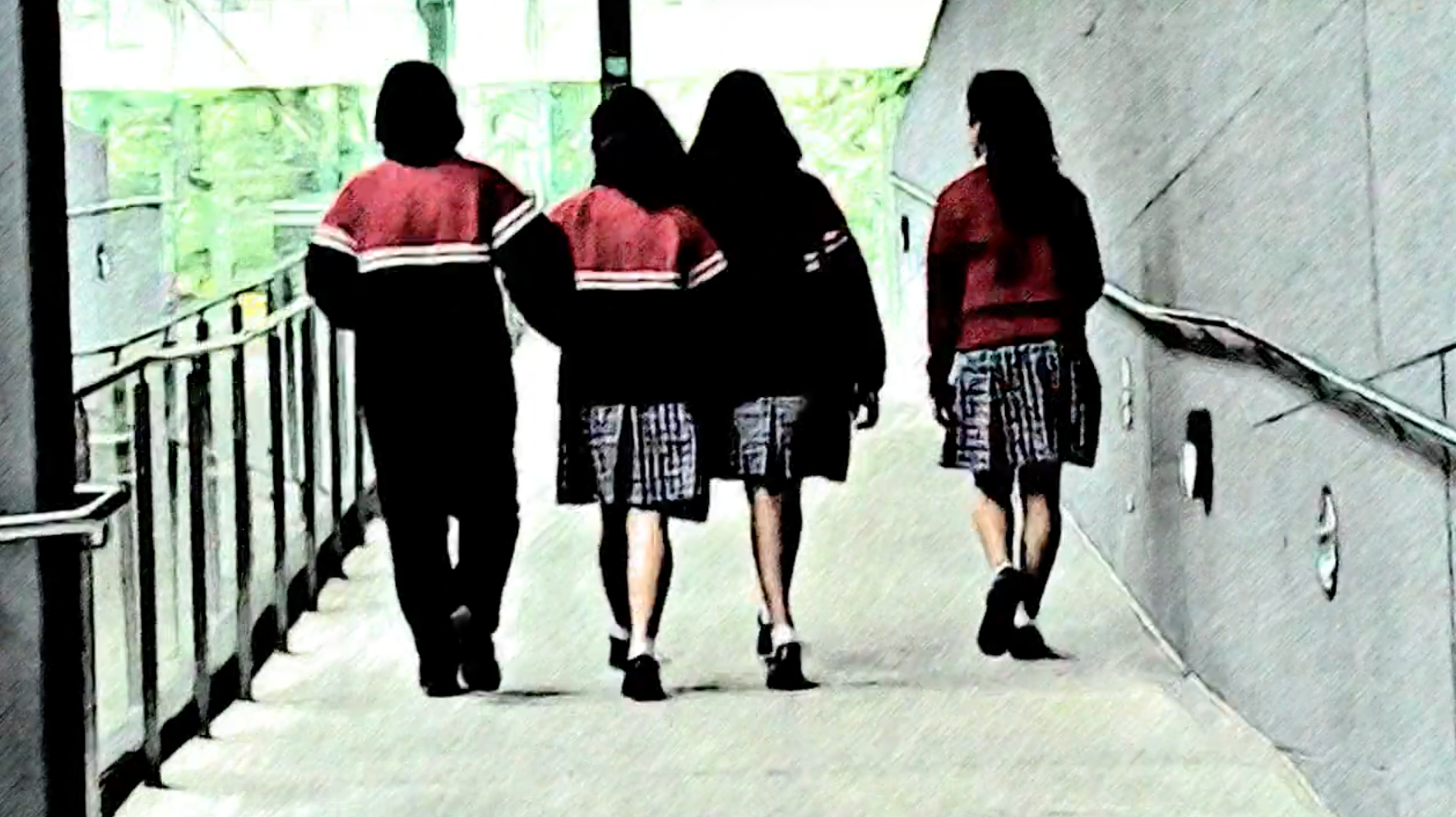
Creative Citizenship, in partnership with local cultural organisations, is encouraging youth to learn in inspiring environments.
The project explores:
— learning outside of the classroom;
— social inclusion through youth-generated teaching and learning materials; and
— improving digital literacies and social capital of young people through the creative exchange.
Visit the Creative Citizenship website.
If you would like to get involved with this project, fill out the form below or reach out to project leaders via the contact info provided alongside each bio.
People
Anne Harris
Associate Professor and Principal Research Fellow, Design and Social Context
School: Education
+61 3 9925 4459
RMIT staff profile
anne.harris@rmit.edu.au
Dr Anne M. Harris, PhD is an Associate Professor and Vice Chancellor’s Principal Research Fellow at RMIT University, and an Australian Research Council Future Fellow (2017 – 2021) studying intercultural creativity. Anne is an Honorary Research Fellow at University of Nottingham (UK) and an Adjunct Professor at Monash University (Australia).
Their research is in the areas of gender, creativity, diversity, performance and emerging digital ethnographies. Anne is a native New Yorker and has worked professionally as a playwright, teaching artist and journalist in the USA and Australia. They have authored or co-authored over 60 articles and 13 books on creativity, arts, and non-dominant culture formations, the latest being Queering Families/Schooling Publics: Keywords (with Stacy Holman Jones, Sandra Faulkner, and Eloise Brook, Routledge 2017). Anne is the creator and series editor of the Palgrave book series Creativity, Education and the Arts, and recently completed an Australian Research Council DECRA on the commodification of creativity.
Mixed Reality Environments
Machine Learning Applications for Design and the Built Environment
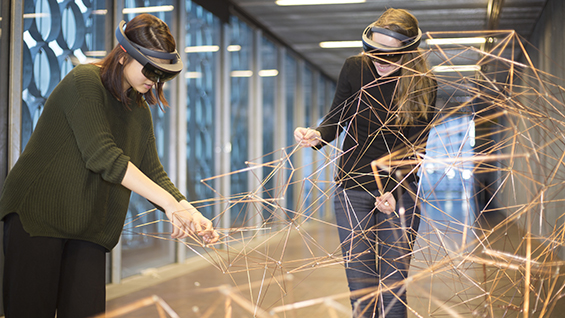
While artificial intelligence (AI) generates real value in many fields, it has seen few design applications. This activity intends to build partnerships with AI experts to implement state of the art machine learning frameworks and cloud computing infrastructure for applications within the design and construction industries. The anticipated outcome are manifold: to position RMIT as a leader in the development of creative applications of AI; to enhance RMIT’s innovation capability by combining the spatial reasoning expertise of architects with cutting edge machine learning capabilities; to develop new and far reaching design applications that may include automated 3d model synthesis, search and classification.
This project aims to develop a platform enabling creatives, consultants and contractors to collaborate within mixed reality environments and test the impact of this platform through speculative and applied design build projects.
If you would like to get involved with this project, fill out the form below or reach out to project leaders via the contact info provided alongside each bio.
People
Cameron Newnham
Associate Lecturer, Industry Fellow
School: Architecture and Urban Design
Cameron Newnham explores how technology and architecture can intersect to extend the art of the possible. Using augmented reality and a deep understanding of architectural practice Cameron is striving to identify how technology can transform architecture and construction, speeding the delivery of complex buildings, and injecting new levels of craftsmanship into the built environment.
Gwyllim Jahn
Lecturer
School: Architecture and Urban Design
Gwyllim Jahn is a Lecturer in the School of Architecture & Urban Design at RMIT in Melbourne where he is currently completing his PhD. His design practice has been internationally awarded and exhibited and is concerned with complex geometry and behavioural design systems, mixed reality environments, autonomous robotic fabrication and creative applications of machine learning.
Design and Social Innovation in Asia-Pacific Network
Capacity building in the Asia-Pacific region

How does design accompany and accelerate economic growth? Economies within the Asia-Pacific region are facing challenges of balancing economic development with social and cultural sustainability.
Design and Social Innovation in Asia-Pacific (DESIAP) is a learning platform, a community of practice and a network for collaboration and ongoing knowledge sharing for various practitioners, researchers, communities, and professionals working in the Design and Social Innovation (D&SI) space in this region. We facilitate rich exchanges on diverse, culturally respectful and contextually specific approaches to real-world problems.
Visit the DESIAP website.
If you would like to get involved with this project, fill out the form below or reach out to project leaders via the contact info provided alongside each bio.
People
Yoko Akama
Associate Professor, Communication Design Cluster
School: Communication Design
+61 3 9925 2805
RMIT staff profile
yoko.akama@rmit.edu.au
Yoko Akama is a design researcher at RMIT University, Australia. She co-leads the Design and Social Innovation in Asia-Pacific network and Design+Ethnography+Futures research program at RMIT.
Her Japanese heritage has embedded a Zen-informed relational practice to carve a ‘tao’ (path) in design and has published extensively on this topic. This practice is shaped by working with regional communities in Australia in strengthening their resilience for disaster preparedness, and with Indigenous Nations enact their sovereignty and self-determination. She is an Adjunct Fellow of a ecosystem innovation studio, Re:public Japan, and Visiting Fellow at the Centre of Excellence in Media Practice, Bournemouth University. She serves on several editorial boards of international journals, and conference review committees. She is a recipient of several major research grants in Australia and the UK and winner of the prestigious Good Design Australia Awards in 2014.
Games for Change
Designing Games for Social Change
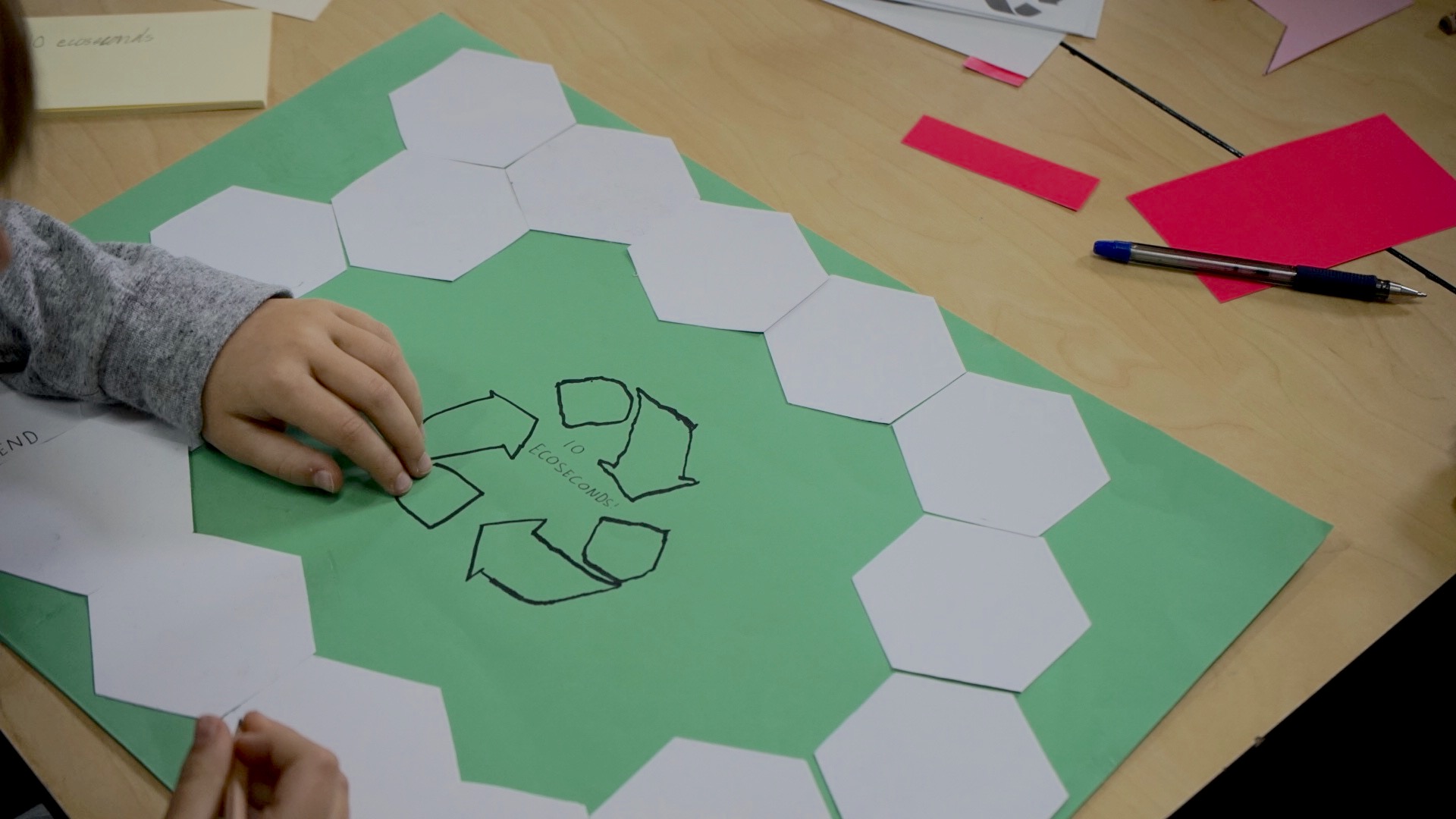
Games for Change takes a play-focused, iteration-based approach to game design. Our first Games for Social Change Workshop saw participants engage in experimental learning and social engagement surrounding a particular topic: ecosystem problems. Young students learnt about game designing and what makes a ‘good’ game. They considered specific environmental issues and then worked together to design and test a game that would help solve that problem.
Game design involves a creative and iterative process guided by prototyping, playing and testing and then refining. Through our Games for Change Workshops we’re making the game design process accessible and actionable for any topic and varying participants.
If you would like to get involved with this project, fill out the form below or reach out to project leaders via the contact info provided alongside each bio.
People
Larissa Hjorth
Distinguished Professor and Director, Design and Creative Practice
School: Enabling Capability Platforms
Larissa Hjorth is a digital ethnographer, artist, Distinguished Professor and director of the Design & Creative Practice ECP platform at RMIT University. With Professor Heather Horst, she co-founded the Digital Ethnography Research Centre (DERC). Previously, Hjorth was Deputy Dean, Research & Innovation, in the School of Media & Communication (2013−2016). Hjorth served on the inaugural Australian Research Council (ARC) Engagement & Impact Pilot study assessment panel for humanities and creative practice.
Hjorth studies the socio-cultural dimensions of mobile media and play practices in the Asia-Pacific region with an emphasis on interdisciplinary, collaborative and cross-cultural approaches. She has published a dozen co-authored books, edited over a dozen Handbooks/Companions and has over 40 journal articles.
More recently, Hjorth’s work has become concerned with how we can bring creative, social and design solutions to the growing ageing populations and, in turn, how we might consider scenarios of what it means to die well. She is also studying how our “more-than-human” companions can teach us about new media in everyday life. Hjorth’s last book, Haunting Hands (Oxford Uni Press) looked at how mobile media is being deployed in situations of grief and trauma, her previous book explored how art practice can teach us new acumen into the climate change debate.
Hjorth’s books include Haunting Hands (with Cumiskey 2017), Screen Ecologies (with Pink, Sharp & Williams 2016), Digital Ethnography (Pink et al. 2016) Mobile Media in the Asia-Pacific (2009), Games & Gaming (2010), Online@AsiaPacific (with Arnold 2013), Understanding Social Media (with Hinton 2013), and Gaming in Locative, Social and Mobile Media (with Richardson 2014).
Hugh Davies
Postdoctoral Research Fellow
School: Games
Hugh Davies is an artist, curator and researcher of games and play. His practice explores histories of media devices and cultures of games in the Asia Pacific Region. Awarded a PhD in Art, Design and Architecture from Monash University in 2014, Hugh’s studies in game cultures have been supported with fellowships from Tokyo Art and Space, M+ Museum of Visual Culture and the Hong Kong Design Trust. Hugh is currently a postdoctoral research fellow at RMIT in Melbourne, Australia.
Social Play Tool Kit
Encouraging social play and games literacies in the classroom.
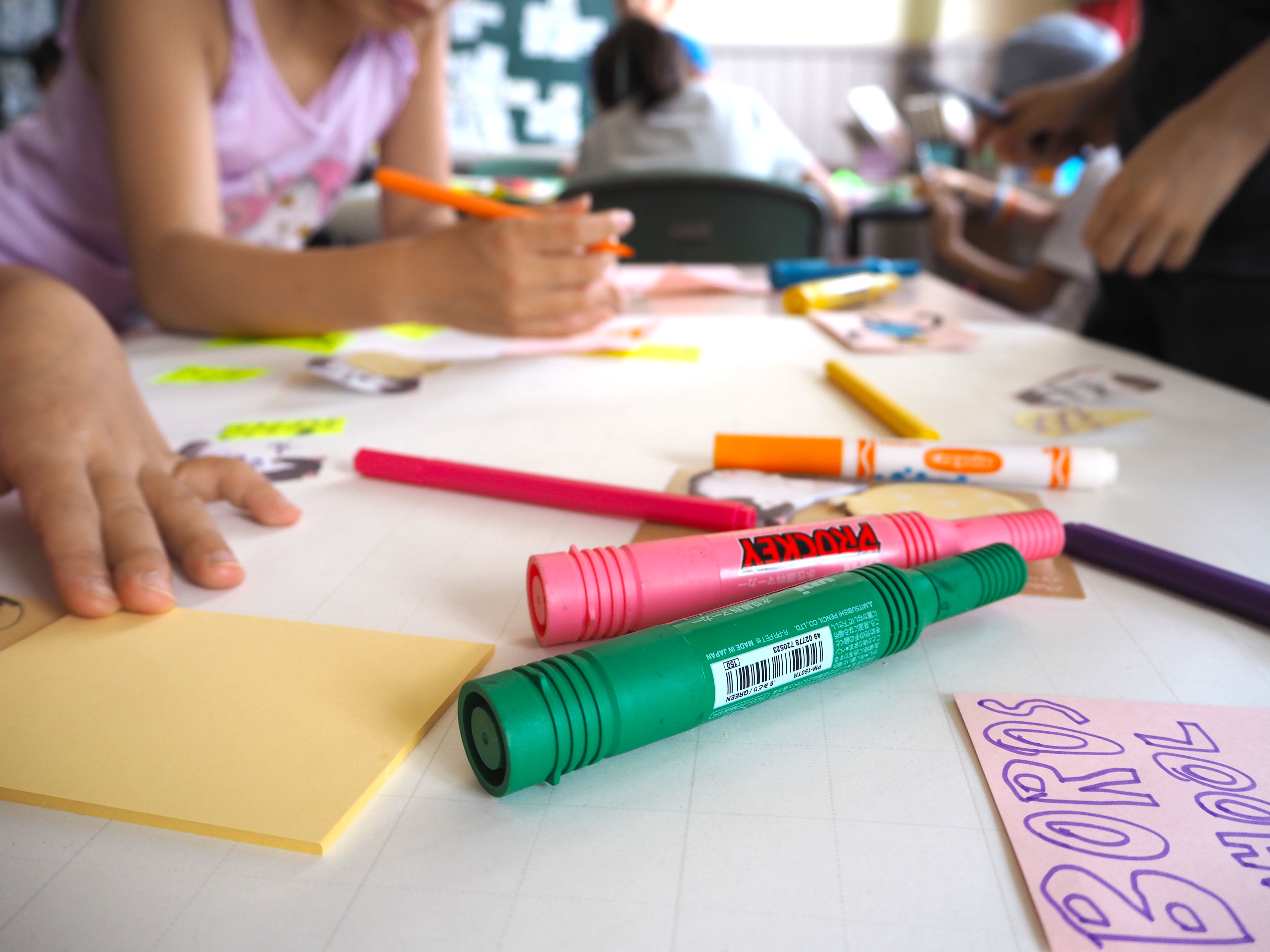
Play is a source of culture, a form of expression, and a creative way of engaging with the world. It is a crucial human ability for adaptation and expression.
In collaboration with our research partners and young people, we have developed a Social Play Tool Kit that encourages social play and game literacies in the classroom. Exploring socially-engaged gameplay and creativity across digital and material contexts, these tools are freely downloadable PDF’s for use in a variety of Primary School age learning environments.
INTRODUCTION TO THE SOCIAL PLAY PROJECT
If you would like to get involved with this project, fill out the form below or reach out to project leaders via the contact info provided alongside each bio.
People
Larissa Hjorth
Distinguished Professor and Director, Design and Creative Practice
School: Enabling Capability Platforms
Larissa Hjorth is a digital ethnographer, artist, Distinguished Professor and director of the Design & Creative Practice ECP platform at RMIT University. With Professor Heather Horst, she co-founded the Digital Ethnography Research Centre (DERC). Previously, Hjorth was Deputy Dean, Research & Innovation, in the School of Media & Communication (2013−2016). Hjorth served on the inaugural Australian Research Council (ARC) Engagement & Impact Pilot study assessment panel for humanities and creative practice.
Hjorth studies the socio-cultural dimensions of mobile media and play practices in the Asia-Pacific region with an emphasis on interdisciplinary, collaborative and cross-cultural approaches. She has published a dozen co-authored books, edited over a dozen Handbooks/Companions and has over 40 journal articles.
More recently, Hjorth’s work has become concerned with how we can bring creative, social and design solutions to the growing ageing populations and, in turn, how we might consider scenarios of what it means to die well. She is also studying how our “more-than-human” companions can teach us about new media in everyday life. Hjorth’s last book, Haunting Hands (Oxford Uni Press) looked at how mobile media is being deployed in situations of grief and trauma, her previous book explored how art practice can teach us new acumen into the climate change debate.
Hjorth’s books include Haunting Hands (with Cumiskey 2017), Screen Ecologies (with Pink, Sharp & Williams 2016), Digital Ethnography (Pink et al. 2016) Mobile Media in the Asia-Pacific (2009), Games & Gaming (2010), Online@AsiaPacific (with Arnold 2013), Understanding Social Media (with Hinton 2013), and Gaming in Locative, Social and Mobile Media (with Richardson 2014).
Abacus Spatial Diagrams
Designing new learning environments
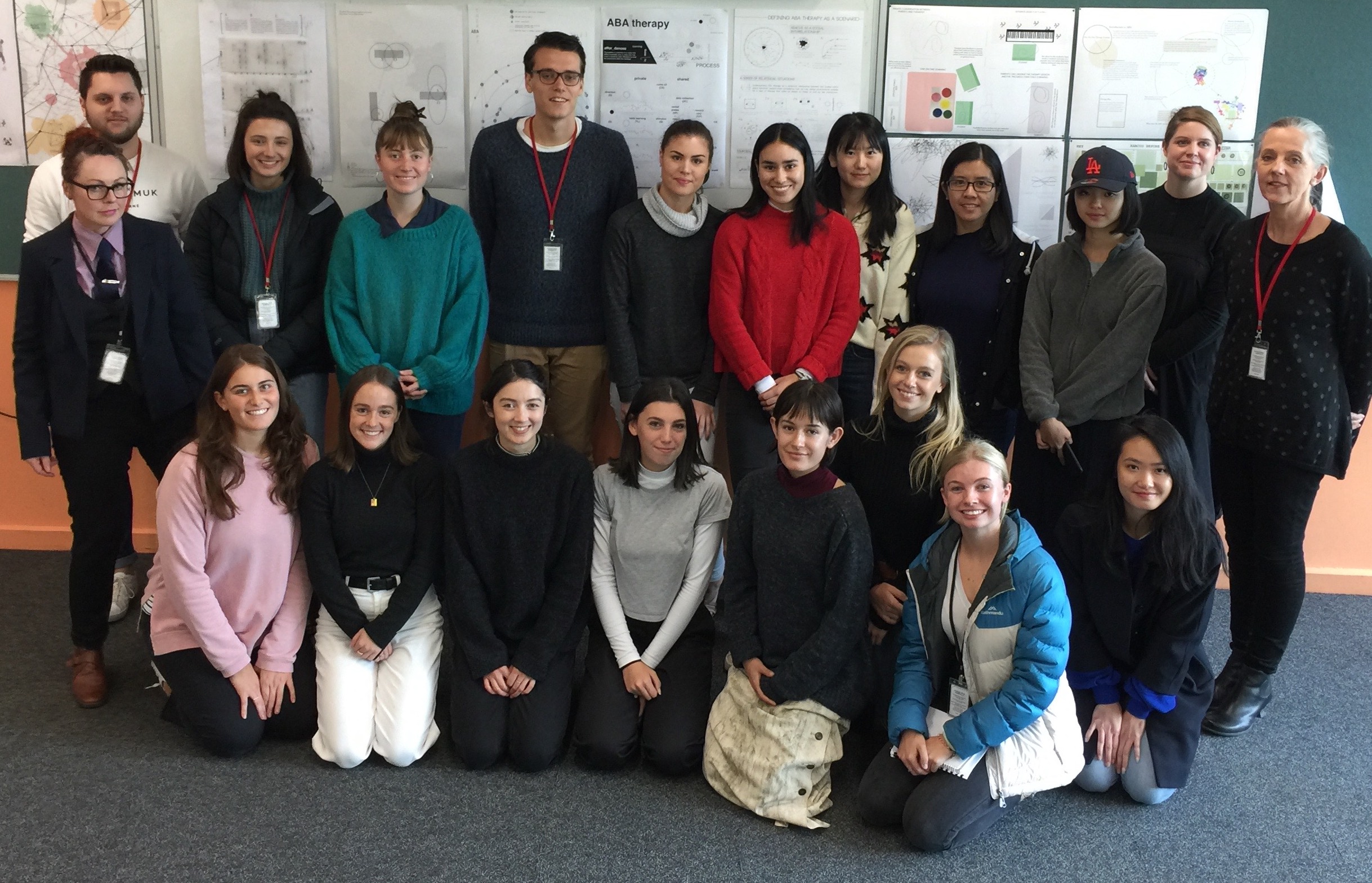
This project involved a studio partnership between RMIT and Abacus Learning Centre for pre-school children with Autism Spectrum Disorder (ASD) and addressed autism and its relationship to interior spaces. A key aspect of this research has been to move away from framing autism as a disorder, to instead help children better understand how they make sense of their surroundings, and subsequently make their learning environment more suitable for the way they learn. New learning ecologies lead to improved quality of life for children with ASD.
The project translates Abacus’s activities into spatial and temporal diagrams for a future design brief that would create this new learning environment. This partnered studio has led to a publication and an ongoing research project addressing autism and interior design. A roundtable discussion – Learning Lines – was held in December 2019 and brought together RMIT colleagues from Schools of Education and Architecture and Urban Design with potential industry partners to foster potential collaborations and develop future projects.
If you would like to get involved with this project, fill out the form below or reach out to project leaders via the contact info provided alongside each bio.
People
Suzie Attiwill
Associate Dean Interior Design
School: Architecture and Urban Design
Since 1991, Associate Professor Suzie Attiwill’s freelance practice has involved exhibition design, curatorial work and writing on interdisciplinary projects in Australia and overseas. Her practice poses questions of interior and interiority in relation to contemporary conditions of living, inhabitation, subjectivity, pedagogy and creative practice. Research is conducted through a practice of designing with a curatorial inflection attending to arrangements (and re-arrangements) of spatial, temporal and material relations. Projects include: urban + interior – a collaborative publication project bringing together an editorial team situated in Milan, Madrid and Melbourne; beyond building with Gregory Nicolau (Australian Childhood Trauma Group); Abacus Learning Centre – for children on the autism spectrum; and a series of curatorial experiments in ecologies of learning – physical, social and mental. Suzie is recognised internationally for her contribution to the discipline of interior design including workshop intensives: Radical Learning, Milan International Architecture Week; and Urban Interiorities in Nicosia, Cyprus; texts: ‘interiorizt’, 2014; and ‘Urban and Interior: techniques for an urban interiorist’, 2011. Artistic director of Craft Victoria (1996−99); board member/chair, West Space (2006−10); chair, IDEA (Interior Design/Interior Architecture Educators Association, 2006-12); executive board member, International Federation of Interior Architects/Designers (2020−21).
News and updates
Shortlisted teams announced
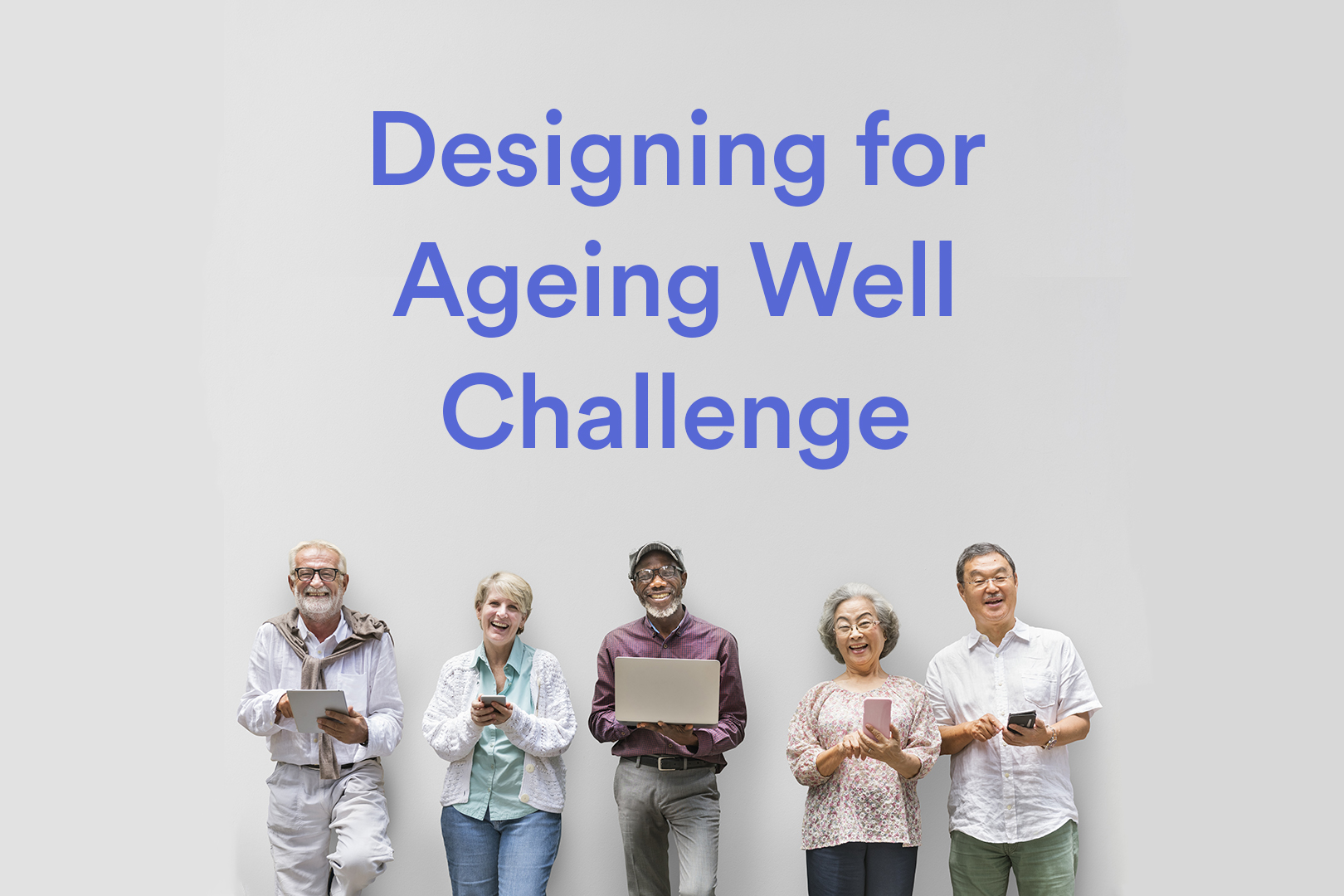
In September 2018 the DCP launched its first Design Challenge, the Designing for Ageing Well Challenge. This called for interdisciplinary teams to develop innovative ideas that reimagine the future of digital health, social innovation and ageing well. We are excited to announce our four shortlisted teams and their projects here. Read more
People
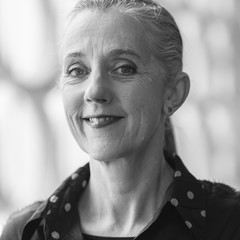
Since 1991, Associate Professor Suzie Attiwill’s freelance practice has involved exhibition design, curatorial work and writing on interdisciplinary projects in Australia and overseas. Her practice poses questions of interior and interiority in relation to contemporary conditions of living, inhabitation, subjectivity, pedagogy and creative practice. Research is conducted through a practice of designing with a curatorial inflection attending to arrangements (and re-arrangements) of spatial, temporal and material relations. Projects include: urban + interior – a collaborative publication project bringing together an editorial team situated in Milan, Madrid and Melbourne; beyond building with Gregory Nicolau (Australian Childhood Trauma Group); Abacus Learning Centre – for children on the autism spectrum; and a series of curatorial experiments in ecologies of learning – physical, social and mental. Suzie is recognised internationally for her contribution to the discipline of interior design including workshop intensives: Radical Learning, Milan International Architecture Week; and Urban Interiorities in Nicosia, Cyprus; texts: ‘interiorizt’, 2014; and ‘Urban and Interior: techniques for an urban interiorist’, 2011. Artistic director of Craft Victoria (1996−99); board member/chair, West Space (2006−10); chair, IDEA (Interior Design/Interior Architecture Educators Association, 2006-12); executive board member, International Federation of Interior Architects/Designers (2020−21).
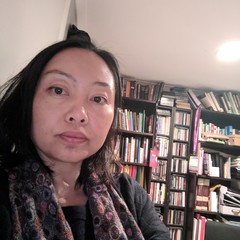
Dr Olivia Guntarik is interested in the relationship between people, places and technologies. She has co-designed and curated place-based cultural walking trails with Indigenous community groups, using mobile apps as self-guided digital tour guides, and as a way to commemorate sites of historical significance. She has led numerous industry-based research projects that bring together writers, artists, designers and digital experts with geographers, sociologists, ethnographers and educators. She was awarded two distinguished Creative Victoria funding initiatives, co-supported through the Department of Education and Training under the Virtual Creative Professionals in Schools program, to provide schools in rural and regional locations with the highest quality creative and digital learning experiences. Research outcomes included the development of interactive mobile apps and site-specific public installations, providing new ways to document and understand user engagement, participation and impact.
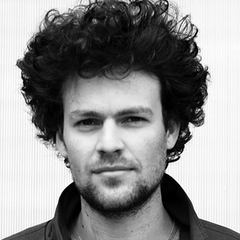
Gwyllim Jahn is a Lecturer in the School of Architecture & Urban Design at RMIT in Melbourne where he is currently completing his PhD. His design practice has been internationally awarded and exhibited and is concerned with complex geometry and behavioural design systems, mixed reality environments, autonomous robotic fabrication and creative applications of machine learning.
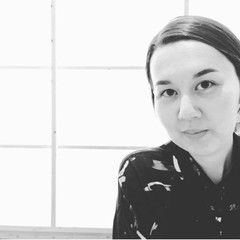
Jacina Leong is an artist-curator and PhD candidate in the School of Media and Communications, RMIT. Her research explores critical-creative and careful curatorial approaches to social innovation practices by museums and galleries.
Over the past decade, she has worked in hybrid new media spaces, universities, national and international festivals, regional museums and galleries, libraries and schools — to vision and deliver a diverse range of trans-disciplinary engagement programs, via highly collaborative, experimental and site-responsive processes. Most recently, Jacina was curator for Robotronica, project lead and founding member of the Guerrilla Knowledge Unit, guest facilitator of the Future Innovators Summit (Ars Electronica Tokyo Initiative), and co-curator of the provocation, Curating In The Age of Automation (RMIT & Ritsumeikan University, Kyoto).
From 2012 to 2017, Jacina worked at The Cube (QUT), establishing the inaugural STEAM engagement program for school and university students, educators and pre-service teachers. This program involved key collaborations with local, national and international organisations including Ars Electronica, LEGO Education, and Brisbane City Council. She has also worked in public program development at the Ipswich Art Gallery, collaborative learning strategy in universities, gallery management at Jan Murphy Gallery, and was advisor to the inaugural Make Nice at VIVID Festival.
